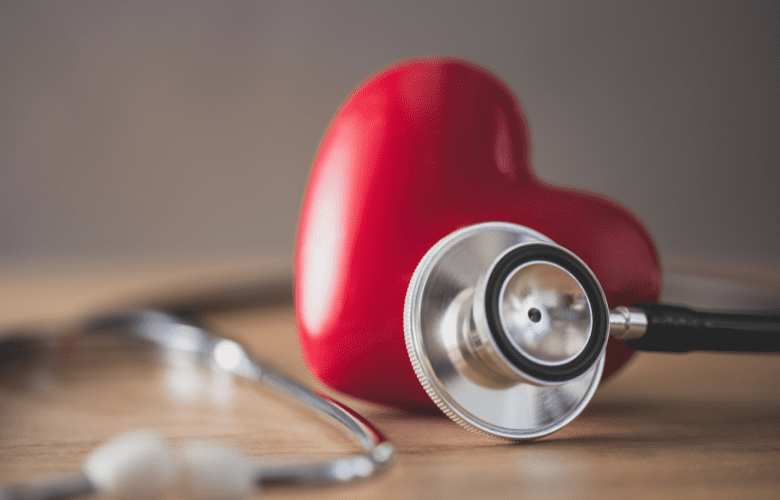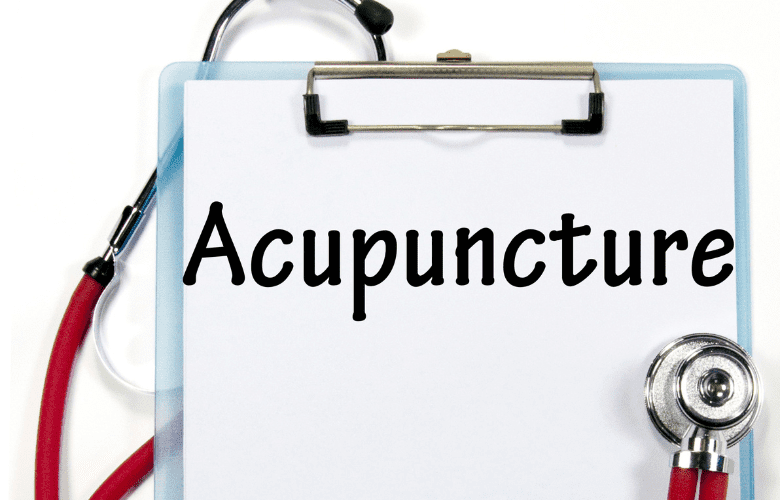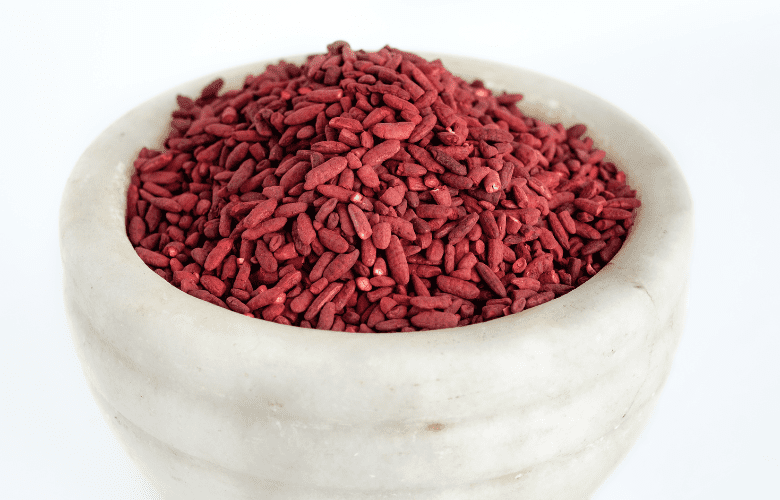7 Ways to Improve Your Hearth Health with Acupuncture
Your heart never gets a holiday to go on a break. It functions 24/7. So it only deserves nothing but the proper utmost care! And yet, despite huge medical advancements, heart disease remains a leading cause of mortality worldwide. The good news? Proven treatments like acupuncture can help keep your heart healthy. In fact, there are 7 ways to improve your heart health with acupuncture.
According to the CDC, high blood pressure and cholesterol are two prevalent but preventable causes of heart disease. Unfortunately, over 100 million Americans struggle with these issues. Even worse, many of them don’t have their condition under control.
That doesn’t have to be your case. You can take action to gain control of these health risks. You can choose to keep your heart strong and healthy!
The Importance of Heart Health in TCM
Traditional Chinese Medicine views the heart as the “King of Circulation.” It is the driving force behind blood pumping and circulating throughout the entire body. This never-ending cycle of blood circulation ensures that all of the body’s structures and organs get enough oxygen and nutrients to working normally.
The heart does more than pump blood, though. It also houses the Shen (spirit or mind), believed to live in the blood vessels. The Shen governs your emotions, consciousness, and other mental processes. It is equivalent to your general vitality, often seen in your eyes, complexion, and responses.
When your Shen is in good health, you can think clearly and logically. You are at ease and tranquil. However, when it is off, you can have trouble focusing, feel anxious, have trouble sleeping, and exhibit other symptoms of mental and emotional disorders — all possibly brought on by an unbalanced heart.
Moreover, the heart is regarded as the “emperor” and most significant of the five Zang organs. The other Zang organs are the liver, lungs, kidneys, and spleen. These organs assume roles in many ways connected to the heart.
Collectively, their primary functions include the production and storage of qi, Xue (blood), jin ye (body fluids), jing (essence), and Shen. If the heart dysfunctions, it can have an impact on other Zang organs and vice versa due to their interdependence.
Cholesterol: A Friend or Foe?
Cholesterol is a type of fat found in the blood. There are two main types, namely:
- High-density lipoprotein (HDL) – commonly referred to as “good cholesterol.” It primarily consists of proteins with very little cholesterol. It clears extra cholesterol from your body by capturing it in your blood and returning it to your liver for degradation.
- Low-density lipoprotein (LDL) – often called “bad cholesterol.” It primarily consists of cholesterol and only contains a trace quantity of proteins.
Your liver manufactures the right amount of cholesterol your body needs to make certain hormones, produce vitamin D, and build healthy cells. However, extra cholesterol can enter your body from the food you eat. Most “bad” cholesterol comes from processed foods such as hamburgers and chicken nuggets.
High cholesterol means you have too much LDL circulating in your blood. These extra fats begin to accumulate in the lining of your arteries.
Eventually, the fatty deposit becomes an immovable plaque that narrows and harms your arteries. The result? Your blood can no longer flow easily to your other organs, including your kidneys and brain. This can lead to serious cardiovascular events like a heart attack.
In TCM, deficiencies in the spleen, kidneys, liver, and stomach are often linked with high cholesterol. Dampness or phlegm is seen as the cause or contributing factor. This can be due to a problem with the digestive system’s capacity to transport fluids or the body being overburdened by dampness from the environment.
High cholesterol can manifest in various patterns, including phlegm obstruction, excessive dampness with kidney deficiency, qi stagnation with blood stasis, yin deficiency of the liver and kidney, and yang deficiency of the spleen and kidney. Weak qi and poor blood and fluid flow promote more cholesterol deposits.
The High Cholesterol – High Blood Pressure Impact on Heart Health
It’s complicated! No, this isn’t a relationship status on a celeb’s Facebook profile. Unfortunately, it’s the connection between high cholesterol and high blood pressure.
People who have high blood cholesterol frequently also have high blood pressure. So it’s crucial to monitor your blood pressure if you’ve been previously diagnosed with high cholesterol.
High blood pressure, aka hypertension, occurs when the force of blood pumped around your body through your arteries is persistently too high. Your heart needs to work harder to pump blood through stiff or restricted arteries, which high cholesterol levels may cause. As a result, your blood pressure keeps rising.
Over time, elevated blood pressure itself might cause artery damage. It causes arterial wall tears where more cholesterol can build up.
Blood pressure and cholesterol can cooperate like partners in crime. Together, they can more swiftly harm your heart, arteries, and general health, even if they are just slightly high.
Several studies confirm that there is indeed a direct correlation between cholesterol and blood pressure. Cholesterol affects the way blood vessels contract and relax, which may also have an impact on the pressure required to pump blood through them. Even slightly elevated cholesterol levels could affect blood pressure.
Similar findings were reported in a study on women published in the JAMA Internal Medicine journal in 2005. Future development of hypertension was more likely in healthy women with greater cholesterol levels than in those with lower cholesterol.
7 Ways to Improve Your Heart Health with Acupuncture
Acupuncture is highly effective in lowering cholesterol and high blood pressure. A certified acupuncturist first identifies the patterns that are having an impact on your body. The treatment helps direct, move, and nourish qi in the related organs and channels by inserting needles in certain heart meridian acupuncture points.
Below are 7 benefits acupuncture can offer that can help manage your cholesterol and blood pressure.
1. Improves circulation
Before starting therapy, your acupuncturist will decide where to insert needles in strategic places. The needle stimulation helps dilate constricted blood vessels obstructing blood flow while improving nutrient distribution and waste disposal.
Acupuncture also encourages the release of trapped energy. As your qi is no longer constrained from freely flowing through your body, the positive effects of acupuncture can also assist lower blood pressure, support vascular system health, and boost energy levels.
2. Activates the autonomic nervous system (ANS)
The ANS is the area of the nervous system that regulates glands and muscles in your body, including those in the heart, blood vessels, lungs, and stomach. According to recent studies, acupuncture helps the heart by triggering the autonomic nervous system, which regulates heart rhythm by raising vagal activity. Your immune system and heart rate are both regulated by your vagal nerves.
3. Relaxes the lungs
When you have high blood pressure, your heart must work harder because it needs more oxygen. Acupuncture can reduce the strain on the heart. Stimulating particular acupuncture points triggers the release of chemicals that relaxes the lungs and widen the airways. As a result, more oxygen is supplied.
4. Modulates stress response
Stress raises blood pressure, heart rate, and glucose levels in the bloodstream for immediate use. This may have a detrimental effect on your heart, digestion, sleep, and mood.
Acupuncture can improve heart health by lowering anxiety and stress. It aids in returning your blood pressure, blood sugar, and heart rate to normal. Regular therapy can undo the harmful effects of long-term stress to prevent more harm, like heart disease.
5. Restores the body’s state of balance
Acupuncture can also help your body return to a state of balance and health. The treatment can help balance qi and control several biological functions, including blood pressure, when the proper combo of specific acupoints is stimulated. The improved energy flow would then boost the body’s self-healing, enhancing overall well-being.
6. Regulates the release of specific hormones and enzymes
Norepinephrine (a hormone that constricts blood vessels and raises blood pressure and blood sugar) was shown to have significantly decreased (41%) in blood concentration in a study of patients receiving acupuncture for high blood pressure. Additionally, the treatment group displayed a 67% decrease in renin, an enzyme produced by the kidneys that aids blood pressure regulation.
7. Helps with obesity
Excess weight isn’t good for the heart. A higher prevalence of hypertension, as well as a cascade of related cardiorenal and metabolic illnesses, can arise due to obesity.
Acupuncture can help promote the rhythmic movement of your gut to facilitate the transportation of food through your digestive tract and the elimination of feces. It can also increase serotonin levels and stimulate the vagal nerve’s auricular branch. Both of these actions raise stomach smooth muscle tone, hence reducing appetite.
Chinese Herbs and Formulations for Heart Health
Acupuncture and Chinese herbs can be paired together to improve your heart health. Although the herbs can frequently be used alone, blending them into a formula will have a more synergistic effect. Chinese herbs should only be prescribed by a practitioner in order to avoid adverse effects.
Single Herbs To Improve Heart Health
- San Qi – revitalizes circulation, clears obstructions, and decreases blood pressure.
- Shan Zha – reduces high cholesterol, treats atherosclerosis, and regulates blood pressure.
- Huang Qi – lowers blood pressure and blood sugar while protecting from the effects of heart disease.
- Dan Shen – promotes and enhances circulation and may also assist in removing or reducing artery plaque.
- Rou Gui – improves cholesterol and lowers blood pressure and triglyceride levels to reduce the risk of heart disease.
- Jiang Huang – enhances blood vessel performance to better control blood pressure and lessen the chance of clotting.
- Zizyphus – improves sleep quality, strengthens the immune system, and treats heart palpitations brought on by anxiety.
Herbal Formulations to Improve Heart Health
- Suan Zao Ren Tang – nourishes the blood, calms the spirit, and dispels heat.
- Zhi Gan Cao Tang – contains considerable amounts of honey-fried licorice, which can affect heart rhythm, blood pressure, and electrolyte levels in the body.
- Yiqi Huaju – reduces high arterial pressure and cholesterol levels.
- Tianma Gauteng Yin – removes heat, stimulates blood flow, and nourishes the kidney.
- Banxia Baizhu Tianma Tang – soothes the liver, boosts the spleen, and disperses extra fluid.
Supplements for the Heart
The following dietary supplements may help lower your chance of getting cardiac conditions like high blood pressure and cholesterol. As with herbs, consult your practitioner before taking any.
- Coenzyme Q10 – improves the ability of cells to obtain energy from food so that your heart can work at its best.
- Omega-3 Fatty Acids – lowers blood pressure and levels of triglycerides (blood fat that blocks the arteries).
- Pomegranate – can decrease blood pressure and reverse atherosclerosis.
- Magnesium – decreases cortisol, the body’s stress hormone, and is excellent for overall heart health. It also lowers blood pressure.
- Potassium – helps to counteract the rise in blood pressure caused by a high-salt diet.
- Grape seed extract – significantly lowers blood pressure, especially for those with early-stage hypertension.
- Fiber – raises “good” (HDL) cholesterol and lowers “bad” (LDL) cholesterol.
Switching to a Heart-Healthy Diet
Foods to love:
- Healthy fats: fish oil, olive oil, and avocado oil
- Organic dairy: eggs, skim milk, cheese, and yogurt
- Fruits: apples, bananas, berries, tomatoes, oranges, dates, figs, grapes, melons, pears, and peaches
- Veggies: asparagus, kale, spinach, onions, cucumbers, potatoes, spinach, turnips, and sweet potatoes
- Whole grains: barley, brown rice, buckwheat, oats, quinoa, rye, and high-fiber cereals and bread
- Nuts and seeds: almonds, cashews, almonds, macadamia nuts, and walnuts
- Legumes: beans, lentils, peas, chickpeas, and pulses
- Fish and seafood: clams, crabs, salmon, tuna, oysters, shrimp, and mussels
- Poultry: chicken, turkey, and duck
- Herbs and spices: basil, cinnamon, garlic, mint, nutmeg, rosemary, sage, and pepper
Foods to limit:
- Trans fats: deep-fried foods, fast food, and margarine
- Refined grains: chips, crackers, white bread, and pasta
- Processed meat: bacon, ham, hotdogs, salami, deli meats, and sausages
- Packaged foods: tinned vegetables, microwave meals, and breakfast cereals
- Added sugar: candies, soda, baked goods, syrup, and ice cream
- Refined oils: canola oil, cottonseed oil, and soybean oil
Final Thoughts on Acupuncture for Heart Health
Give your heart some TLC! Conditions like high cholesterol and hypertension do not have to be your fate. Improve your heart health with acupuncture, Chinese herbs, and a proper diet. Reach out to us, and we’ll work with you to create a personalized approach your heart will thank you for. The sooner, the better. A healthy heart means a happy you!













